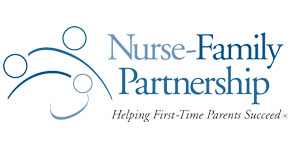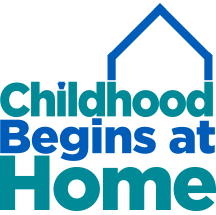
Nurse-Family Partnership pairs first-time, low-income pregnant women with nurses to improve pregnancy/birth outcomes, child health and development, and family economic self-sufficiency. Research shows this model:
Lowers the chance of childhood injuries, improves compliance with immunization schedules, and reduces the incidence of preterm births.
- Nurse-Family Partnership lowers the chance of childhood injuries as well as improves compliance with immunization schedules. [Miller, T. R. (2015). Projected Outcomes of Nurse-Family Partnership Home Visitation During 1996–2013, USA. Prevention Science, 16, 765-777. https://doi.org/10.1007/s11121-015-0572-9\]
- Nurse-Family Partnership reduces the incidence of preterm births by educating mothers on child development and maternal health. [Thorland, W., & Currie, D. W. (2017). Status of Birth Outcomes in Clients of the Nurse-Family Partnership. Maternal and Child Health Journal, 21(5), 995-1001. https://doi.org/10.1007/s10995-017-2267-2]
Improves the employment status and educational attainment of first-time mothers, reduces utilization of public assistance, and teaches mothers how to better plan future pregnancies.
- Nurse Family-Partnership increases economic self-sufficiency by improving the employment status and educational attainment of first-time mothers. [Flowers, M., Sainer, S., Stoneburner, A., & Thorland, W. (2020). Education and Employment Outcomes in Clients of the Nurse–Family Partnership. Public Health Nursing, 37(2), 206-214. https://doi.org/10.1111/phn.12711]
- Nurse-Family Partnership reduces use of subsidized childcare, TANF payments, and food stamp payments by improving birth spacing and increasing the amount of time between subsequent births. [Miller, T. R. (2015). Projected Outcomes of Nurse-Family Partnership Home Visitation During 1996–2013, USA. Prevention Science, 16, 765-777. https://doi.org/10.1007/s11121-015-0572-9\]
- Nurse-Family Partnership decreases the need and cost of Medicaid coverage by reducing pregnancy-related complications. [Miller, T. R. (2015). Projected Outcomes of Nurse-Family Partnership Home Visitation During 1996–2013, USA. Prevention Science, 16, 765-777. https://doi.org/10.1007/s11121-015-0572-9\]
- Nurse-Family Partnership teaches mothers how to effectively use birth control in order to better plan future pregnancies. [Eckenrode, J., Campa, M. I., Morris, P. A., & Henderson, C. R., Jr. (2017). The Prevention of Child Maltreatment Through the Nurse Family Partnership Program: Mediating Effects in a Long-Term Follow-Up Study. Child Maltreatment, 22(2), 92-99. https://doi.org/10.1177%2F1077559516685185]
Decreases maternal substance use, increases the likelihood of breast feeding, and improves maternal health outcomes.
- Nurse-Family Partnership decreases maternal substance use of alcohol, tobacco, and marijuana while pregnant. [[Miller, T. R. (2015). Projected Outcomes of Nurse-Family Partnership Home Visitation During 1996–2013, USA. Prevention Science, 16, 765-777. https://doi.org/10.1007/s11121-015-0572-9\; Catherine, N. L., Boyle, M., Zheng, Y., & McCandless, L. (2020). Nurse Home Visiting and Prenatal Substance Use in a Socioeconomically Disadvantaged Population in British Columbia: Analysis of Prenatal Secondary Outcomes in an Ongoing Randomized Controlled Trial. Canadian Medical Association Journal, 8(4), 667-675. https://doi.org/10.9778/cmajo.20200063]
- Nurse-Family Partnership reduces the prevalence of pregnancy complications, such as hypertension, preterm birth, and infant death while additionally increasing their likelihood of breastfeeding. [Miller, T. R. (2015). Projected Outcomes of Nurse-Family Partnership Home Visitation During 1996–2013, USA. Prevention Science, 16, 765-777. https://doi.org/10.1007/s11121-015-0572-9\]
- Nurse-Family Partnership decreases the likelihood of maternal mortality caused by preventable causes of death. [Donelan-McCall, N., Knudtson, M., & Olds, D. L. (2017). Extending the Analysis of Nurse Family Partnership on Maternal and Child Mortality. Laura and John Arnold Foundation, 1-54. https://doi.org/10.3886/E108425V1]
Nurse-Family Partnership serves families in 48 counties.
